Teach Me of Motherhood: Six Inspiring Mothers in Literature
Chosen by six of your favorite Substackers, in time for Mother's Day
Be sure to click through to read this in your browser instead of in the e-mail, since this post is a bit too long for e-mail!
Dear Friends,
We all need role models. Yes, parents need them, too! Mothers need grandmothers, aunts, sisters, and friends; fathers need grandfathers, uncles, brothers, and friends. And men can learn from women, and women from men, as well.
What a gift it is to have someone trustworthy from whom to draw wisdom.
Recently, and I had a brief conversation in one of the Hollow’s comment sections about another source of inspiration and modeling for parents: mothers in literature.
Have you ever “met” a maternal or paternal character in a novel, poem, or play, and felt admiration (or compassion) swell in your heart? I certainly have. And just as fairy tales and other fiction can help form the imagination and practices of children, meaningful fictional portrayals of parenthood can help form the imagination and practices of mothers and fathers (and aunties and uncles, too).
There are many wise parents in the world of fiction, mothers and fathers who can encourage or instruct adults who care for children in the real world. There are also mothers and fathers in fiction whose pain and difficulty can inspire us to greater compassion, gratitude, and resilience.
To explore this idea further, I have asked six of my favorite Substack writer-mothers — , , , , , and —to introduce us to their favorite mothers in literature in today’s post, and they have responded most generously. Perhaps you will find in their notes (below) a new kindred spirit or two — or you will find a good book to read (or give!) this Mother’s Day.
Enjoy!
—
The Provincial Lady
From Diary of a Provincial Lady, by E.M. Delafield
We don’t know the name of the Provincial Lady, though she is loosely based on her creator, E.M. Delafield, and Delafield would be most amused to be included in a list of inspiring fictional mothers.
The Provincial Lady may have servants, but her concerns are the concerns of mothers immemorial: children, money, what on earth to feed everyone. She’s no Ma from Little House, no Marmee from Little Women. She madly dyes her hair an unfortunate colour, she’s forever pawning her great-aunt’s diamond ring to solve a temporary cash flow problem (“And what name will it be this time?” asks the Plymouth pawnbroker), and her cook is perpetually threatening to give notice. But nothing keeps her down for long, and most importantly, she has a wry sense of humour about it all. And despite everything, like a lot of mothers here on Substack, the Provincial Lady always has a good book on the go.
She’s not exactly inspiring, but she is indefatigable. She’s not a shining example, which might leave me feeling rather a dull failure. She’s more than that: she’s a reminder that I’m not alone, and that’s something every mother needs.
— of How We Homeschool
Susan Sowerby
From The Secret Garden, by Frances Hodgson Burnett
What do children need to thrive? A story concerned with this question needs a convincing mother character, and The Secret Garden has Susan Sowerby. Her dialogue is often relayed by one of her children (she only has twelve), and we do well to listen—Susan Sowerby is an ordinary expert on fairness, self-perception, health, humor, and almost everything else. Susan’s words find Mary, a bad-tempered orphan who has been brought to Misselthwaite manor, through her oldest daughter Martha, who works there as a housemaid. When Martha announces that her mother bought a present for Mary, the child wonders to herself: “How could a cottage full of fourteen hungry people give any one a present!”
Martha repeats Susan’s words: “‘I’ve got four places to put every penny, but I’m just goin’ to take tuppence out of it to buy that child a skippin’-rope’”.
What moved me about this moment was what Susan gave to Martha. In effect, Susan tells her own daughter: We have another kind of abundance. And we can share that love with anyone who needs it, because we will always have enough.
— of Still Today
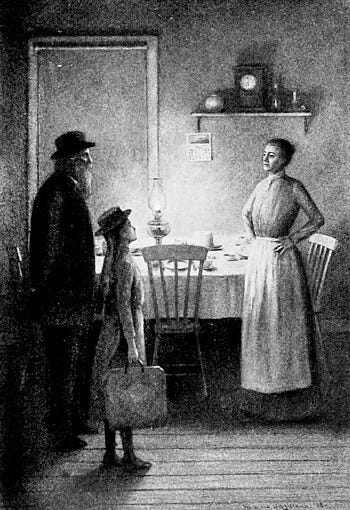
Marilla Cuthbert
From the Anne of Green Gables series, by L. M. Montgomery
Some women are born mothers. And then there was Marilla: tall, thin, all angles, no curves, and a tight knot of hair, looking “like a woman of narrow experience and rigid conscience, which she was.” Yet she grew into her role in spite of herself, demonstrating that mothering is a process. One of the paramount traits she displays is patience (admittedly getting exasperated, but staying calm when Anne slams a slate over Gilbert’s head, accidentally gets Diana drunk, or dyes her hair green). She knows when to admit her mistakes and ask for forgiveness: “Anne you do beat all! But I was wrong – I see that now…So if you’ll forgive me, Anne, I’ll forgive you and we’ll start square again.” But above all, she is present without fail to hear all about Anne’s joys, fears, and woes.
One thing that I especially appreciate about Marilla is that she reminds me that our relationship with our children is bi-directional: we try our best to lead them and they in turn change us. Children have an uncanny power to thaw our hard parts, humble us in our set ways, and help us discover the joys we were not aware existed.
— of School of the Unconformed
Kristin Lavransdatter
From Kristin Lavransdatter, by Sigrid Undset
Kristin learns through motherhood not only that it is her path to salvation, but that we bring our own sins and past to the way we mother. Undset doesn’t hold back in displaying how Kristin has to battle not only the difficulties of life in medieval Norway for her seven sons, but the cost her own sin has brought on their lives. This painful reality is something Kristin comes face to face with many times over the course of the book, and it is sobering to read how she deals with it. This reminds me that so often when I am struggling in motherhood it is often not motherhood itself that is the problem, but my own sins and flaws that may be rearing their ugly head, and which demand my attention and more likely than not, my repentance.
But through all her struggles the reader knows that Kristin is a devoted mother whose love for her children may be her strongest passion. Through Kristin’s thoughts about motherhood Undset puts into words the struggle of every mother who at once wants to see her children flourish and grow, while at the same time feeling her heart break as she knows this growth will lead her children away from her. No other place in literature has so captured the same heartbreak I feel in seeing my kids grow up before me. Kristin Lavransdatter is not a perfect mother, but she is a real one who shows us so much of what it means to experience the good, true, and beautiful in the vocation of motherhood, but also to realize that it is always a heartbreaking endeavor.
— of Necessary Judgments
Katie Nolan
From A Tree Grows in Brooklyn, by Betty Smith
If I could choose a theme for Katie Nolan’s character arc, it would be resurrection: throughout the novel, her character continually brings forth growth out of what seems dismal, life out of (literal and figurative) death. In a poignant scene early in the novel, a meddling neighbor comments on the sickly appearance of Francie (Katie’s eldest child), saying: “You’ll never raise that one. . . . Her color ain’t good. If the good Lord takes her, it will be for the best. What good is a sickly baby in a poor family?” Katie’s retort speaks volumes about the character we will see unfold in the coming chapters:
Don’t say that. . . . It’s better not to die. . . . Everything struggles to live. Look at that tree. . . It gets no sun. . . . It’s growing out of sour earth. And it’s strong because its hard struggle to live is making it strong. My children will be strong that way.
Indeed, the Nolan family struggles to live, and being human, Katie is not immune to occasionally succumbing to the counsels of despair. In fact, Smith offers us a glimpse into Katie’s interior life, sharing her not-infrequent bouts of frustration with the toil and struggle that largely defines her life. She even admits to feeling a “flash of contempt” for her sickly baby, Francie. Yet what the novel so clearly shows us is that Katie’s virtue is not in never having a negative or unholy thought: it’s in having them, yet nonetheless persisting in doing the hard emotional and physical labor to sustain her family.
And that she does. In spades.
She works multiple jobs scrubbing dirty tenements, even while very pregnant with her third child. She shoots a sexual predator who advances on her daughter. She squeezes and scrapes together what remains of her dwindling energy to make life feel special for her young children, whether it’s a Saturday dinner or extra cream in the coffee or extra spending money for the children to buy trinkets. She uses her beautifully shaped but chapped and worn hands, which Smith references frequently throughout the novel, to create beauty where she finds it, “whether it was to put a broken flower into a tumbler of water with one gesture, or to wring out a scrub cloth with one decisive motion.” She doesn’t fall into despair when her husband, Johnny, dies, but she welcomes new life in all its forms, whether a new baby (their daughter, Laurie, who Johnny never meets) or, ultimately, a new marriage—and the much more prosperous and comfortable life that comes with it.
Katie Nolan is an imperfect character, which makes her more believable. More real. Yet even in her imperfection, even with her inevitably rough edges, she brings forth new life out of “sour earth.” An exchange between her two older children, Francie and Neely, at the end of the novel says it all: while discussing their much younger sister, who would be raised by their new father figure, a well-to-do man named Sargeant McShane, they remarked that she would indeed have it much easier than they did. But, they also said, she wouldn’t have “as much fun.”
At her core, that’s who Katie Nolan is: a woman who can raise her children in a Brooklyn tenement, utterly surrounded by filth, struggle, and death, and what the children remember is the beauty, the joy, and the good.
— of Chrism and Coffee
Andromache
From The Iliad, by Homer
Motherhood to us, even in our sheltered American lives sometimes feels like daily going into battle--cue all the jokes that getting small children out the door and buckled into car seats makes the Invasion of Normandy seem like an amateur operation.
And yet, making such analogies is the privilege of mothering in a country at peace--a wonderful gift and privilege that I appreciate all the more when reading about those denied it. I think of Andromache in Homer's Iliad, who gave birth during a war and tragically lost her baby when Troy was sacked. Her story is one that calls us today, just as much as three thousand years ago, to compassion for the suffering of mothers and children in war. Whenever men write traditional military histories, too often the emphasis is on heroic actions--put simply, war is where heroes are made! And yet, at what cost? May the Lord have mercy.
— of Cultural Christians in the Early Church
Now, it’s your turn:
- Do any of these characters remind you of people in your own life (whether or not they are mothers)?
- If you are a mother or father, which of these characters might inform your parenting? Which maternal characters would you add to this list?
- Which father figures in literature inspire you?
- Would you be interested in a post on important father figures in literature with recommendations from Substack men?
Thank you so much to , , , , , and for their contributions! I can highly recommend the writing of each of these clear-eyed women, and hope you will visit their ‘stacks if you haven’t done so already.
Two last notes:
First, I wanted to let everyone know that book links will be Bookshop.org affiliate links from now on. When you purchase a book from my affiliate shop, you help support my work. Thank you!
Second, if you enjoyed this post, you will love our monthly Quick Book Notes at the Hollow, including this recent one on girl protagonists and this one on boy protagonists! About half of each post is behind the paywall, so you can see a fair bit before committing, but do also consider becoming a paid subscriber for only $5/month, if you are interested and able.
Warmly yours,








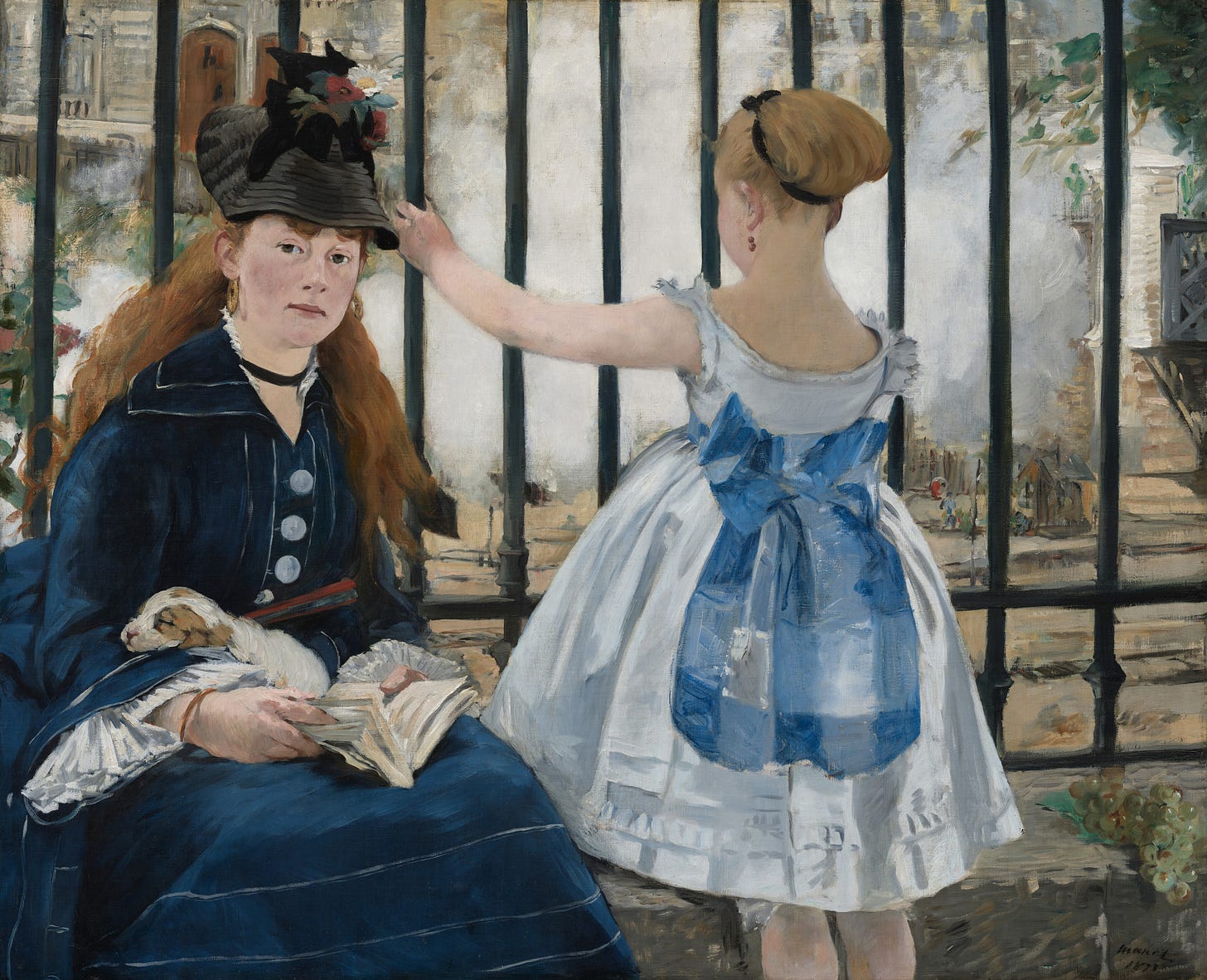
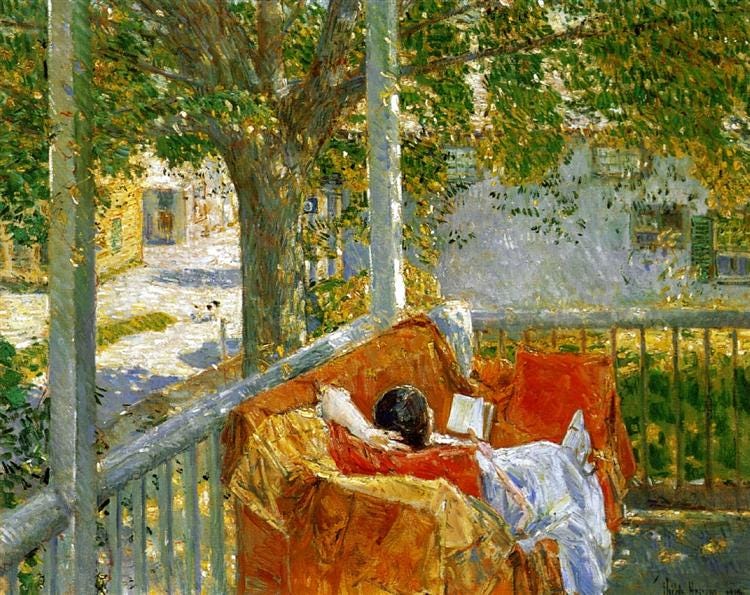
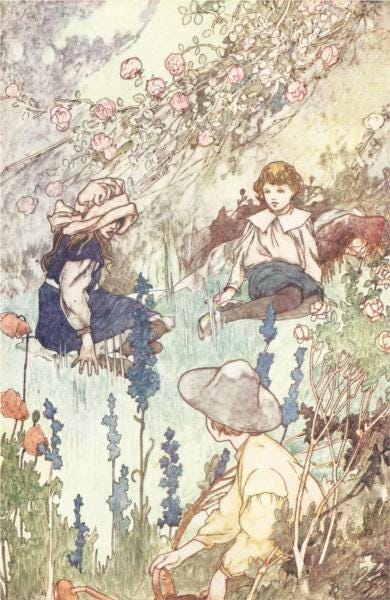

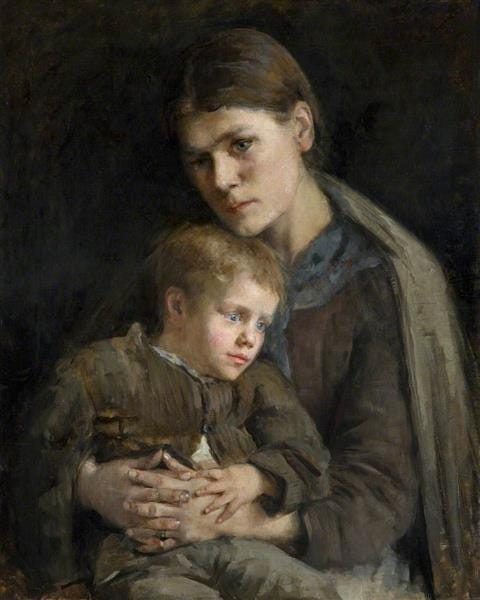







Also I would be 10/10 interested in seeing a Fathers post (and I hope someone does Odysseus)
I love this! Have you heard of a book by Jennifer Pepito called “Mothering by the Book”? I haven’t actually read it but as I understand it, the premise is how these book mothers helped her along this path of letting go of perfectionism in her own parenting. It’s on my TBR.
I often think about how important these book families are for children, for mothers, for everyone! They give us so much to aspire to, but they also give a blueprint of what a family should be — not a perfect one of course, but I think they taught me what it would feel like to be loved. And I think especially when there is childhood adversity, we can’t underestimate the impact of these good things that are tucked away in our brains. Perhaps we didn’t experience a mother like this, but were given the idea that they existed. The Marmees and the Ma’s and the faithful women in these books I think have formed my idea of what a mother is in ways I don’t even realize.